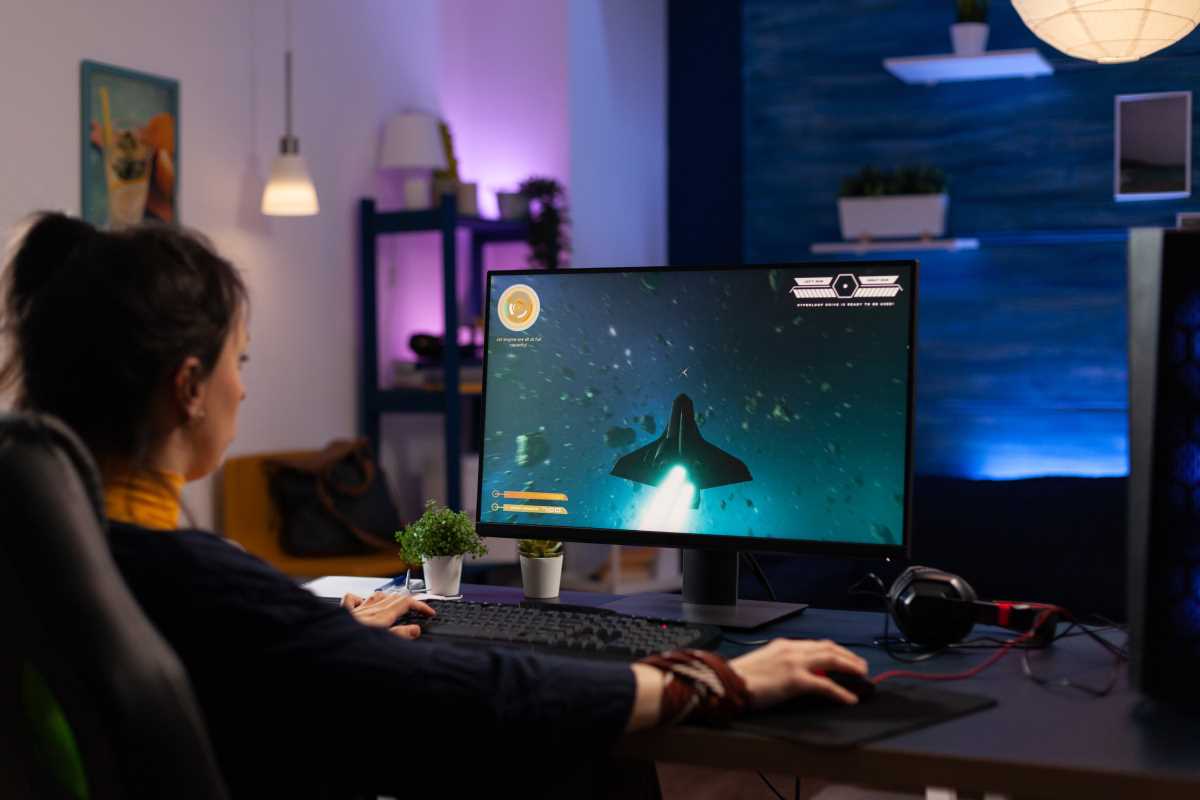For those passionate about gaming, it might feel like more of a hobby than a career path. But here's some great news—many of the skills you develop while gaming can translate directly into fulfilling and lucrative professions. The teamwork, problem-solving, adaptability, and strategic thinking honed in gaming sessions aren’t just valuable in the virtual world—they’re assets in the professional world too. Whether you’re dominating online multiplayer games, streaming gameplay, or analyzing mechanics, there’s a career out there waiting for you to level up.
Here’s a closer look at some of the best careers for gamers, and how the skills you’ve mastered can set you up for success.
1. Game Development
Why It’s a Great Fit for Gamers
If you’ve spent hours analyzing game mechanics, exploring narratives, or critiquing character designs, a career in game development might be your calling. Game development includes roles in programming, animation, design, and storytelling—and your deep understanding of gaming makes you uniquely positioned to thrive in this field.
Transferable Skills
- Problem-Solving: Tackling in-game challenges sharpens your ability to think critically, which is vital for coding, debugging, and creating complex game systems.
- Creativity: Immersing yourself in innovative game worlds can inform your design and storytelling.
- Understanding Player Experience: Your time spent as a gamer gives you first-hand insight into what makes games enjoyable, helping you craft engaging experiences for others.
How to Get Started
Learn game engines like Unity or Unreal Engine, and consider taking online courses in game design or programming (platforms like Coursera or Udemy are great). Start small by building your own games or joining modding communities to showcase your creativity.
2. Esports
Why It’s a Great Fit for Gamers
Competitive gaming has transformed into a booming industry, with opportunities ranging from professional esports players to coaches and team managers. If you’re skilled in a particular game like League of Legends, Fortnite, or Valorant, you could potentially turn your passion into a high-stakes career.
Transferable Skills
- Teamwork: Most esports games demand seamless collaboration with teammates, making communication and synergy your competitive advantage.
- Quick Decision-Making: Gamers often think and act strategically under pressure—a top skill for thriving in competitive environments.
- Adaptability: Adjusting strategies mid-game translates to working effectively in fast-paced situations.
How to Get Started
Participate in tournaments (even local ones) and build your presence by streaming your gameplay. Networking is vital, so engage with esports communities online. If you’re aiming for roles like coaching or management, focus on understanding team dynamics and player development.
3. Content Creation (Streaming, YouTube, Blogging)
Why It’s a Great Fit for Gamers
Love entertaining others while showcasing your gaming prowess? Content creation could be your stage. Twitch, YouTube, and platforms like TikTok have made it easier than ever to monetize gameplay, tutorials, and gaming commentary.
Transferable Skills
- Creative Storytelling: Gamers excel at weaving narratives through gameplay, which is vital for captivating an audience.
- Engagement: Interacting with online communities during multiplayer games enhances your ability to entertain and build relationships.
- Perseverance: Gaining traction as a creator takes consistency, and gamers are no strangers to grinding for their goals.
How to Get Started
Decide your niche—whether it’s walkthroughs, esports coverage, or funny gameplay highlights. Invest in basic equipment like a good microphone and camera, and stay consistent with posting. Engage with your audience to build a loyal fanbase.
4. Game Testing/Quality Assurance
Why It’s a Great Fit for Gamers
If you enjoy analyzing games for bugs, flaws, or areas for improvement, a career in game testing might be perfect for you. Game testers play pre-release versions, providing feedback to developers to ensure quality.
Transferable Skills
- Attention to Detail: Gamers often notice subtle patterns and errors, which are critical for identifying bugs or glitches.
- Patience: Replaying sections of a game repeatedly to locate issues requires the same patience gamers show when mastering difficult levels.
- Analytical Thinking: Breaking games down to improve their design or mechanics is a natural step for avid players.
How to Get Started
Look for entry-level positions at game studios or QA-testing companies. Highlight your understanding of game mechanics and your ability to provide constructive feedback. Some studios even offer internships to aspiring testers.
5. Technology-Based Careers (Software Development & UX Design)
Why It’s a Great Fit for Gamers
Tech careers like software development or UX design are natural extensions of gaming expertise. From designing apps and websites to creating intuitive user interfaces, many of the problem-solving and creative skills you develop while gaming come into play here.
Transferable Skills
- Strategic Thinking: Games require you to think a few steps ahead, much like coding or designing user experiences does.
- Understanding User Needs: Gamers intuitively understand what makes interactions enjoyable and efficient—insight that’s critical when designing products.
- Learning Complex Systems: Mastering game mechanics prepares you for navigating coding languages or complex design tools.
How to Get Started
Learn languages like Python, JavaScript, or HTML/CSS for software development. If UX design interests you, start by learning tools like Figma or Adobe XD and build a portfolio to showcase your skills. Bootcamps and online courses can help fast-track your learning.
6. Video Game Journalism
Why It’s a Great Fit for Gamers
If you love analyzing games, discovering industry trends, and writing about your experiences, game journalism could be a great career path. Working for gaming websites, magazines, or blogs lets you contribute to the field you’re passionate about.
Transferable Skills
- Research: Understanding game lore, mechanics, and updates sharpens skills needed to create in-depth reviews and articles.
- Clear Communication: Explaining ideas effectively, whether during multiplayer strategy discussions or online forums, translates directly to compelling writing.
- Critical Thinking: Evaluating games from a balanced perspective is crucial for writing engaging and insightful pieces.
How to Get Started
Start contributing to gaming blogs or create your own. Build a portfolio of written reviews, opinion pieces, or industry news. Networking with other gaming journalists at events or through social media can also open doors.
Tips for Transitioning From Gaming as a Hobby to a Career
If you’re ready to use your love for gaming as a launchpad for a professional path, here are a few key steps to take:
- Highlight Transferable Skills: When applying for jobs, emphasize teamwork, adaptability, or strategic thinking gained through gaming. For example, explain how leading a guild in an MMORPG improved your leadership and coordination abilities.
- Build Relevant Portfolios: If you want to move into creative or tech roles, showcase your work through personal projects, blogs, or GitHub repositories.
- Engage With Communities: Networking is king. Join gaming forums, LinkedIn groups, or Discord servers to connect with professionals in your field of interest.
- Leverage Certifications or Courses: Taking online courses in game design, coding, marketing, or writing bolsters credibility and complements your gaming experience.
- Stay Persistent: Just like tackling a tough level in a game, transitioning into a career is a process that requires effort, learning, and patience.
Gaming is more than just a pastime—it’s a gateway to careers filled with creativity, strategy, and innovation. Whether you dream of creating games, competing at the highest level, or designing intuitive user experiences, the skills you’ve earned as a gamer are valuable stepping stones. The key is to identify where your passion meets a professional path and to take bold, deliberate steps toward it.
Remember, the world of work is shifting toward valuing practical, demonstrable skills—and as someone immersed in the dynamic world of gaming, you’ve already got a head start. Now, it’s up to you to harness that energy and turn your gaming experience into a career you love. It’s your move—so what’s your next play?
 (Image via
(Image via.jpeg)





